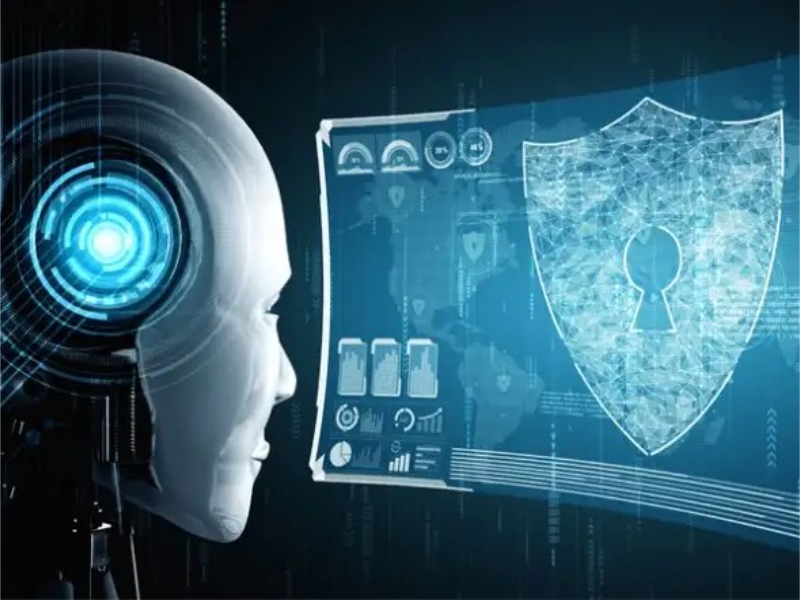- While AI will further change the field of cybersecurity in the future, it is not a complete replacement for ethical hackers.
- Synergy between AI and human experts will be key to countering increasingly complex cybersecurity threats.
Artificial Intelligence (AI) has been making strides in various industries, and cybersecurity is no exception. Ethical hackers, also known as white-hat hackers, are professionals who use their skills to find and fix vulnerabilities in systems to prevent malicious attacks. The question arises: will AI eventually replace these experts? This article aims to explore the capabilities of AI in cybersecurity and its potential impact on the role of ethical hackers.
The role of ethical hackers
Ethical hackers play a crucial role in the cybersecurity landscape. They are employed to identify and rectify security flaws in a system before cybercriminals can exploit them. Their work includes penetration testing, vulnerability assessments, and security audits. They are the first line of defense against cyber threats, using their knowledge and skills to protect organisations from potential breaches.
AI in cybersecurity
AI has been increasingly integrated into cybersecurity measures. Machine learning algorithms can detect patterns and anomalies that may indicate a security threat. AI systems can process vast amounts of data quickly, identifying potential threats faster than human analysts. They can also automate routine tasks, such as monitoring network traffic and scanning for malware, which can free up ethical hackers to focus on more complex issues.
Advantages of AI in cybersecurity
- Speed and efficiency: AI can analyze data at a speed that far exceeds human capabilities, allowing for quicker detection of threats.
- Reduce cyber workforce gap: AI can reduce the overall cyber workforce gap by increasing efficiency and reducing the human resources required.
- Consistency: Unlike humans, AI does not tire, ensuring a consistent level of performance.
- Scalability: AI can be scaled to handle large volumes of data and multiple tasks simultaneously.
- Predictive analysis: AI can learn from past incidents and predict future threats, providing a proactive approach to cybersecurity.
Also read: AI in cybersecurity: Challenges and opportunities
Challenges of AI in cybersecurity
Despite its advantages, AI also faces several challenges:
- Lack of creativity: AI systems are limited by the data they are trained on and may not be able to think outside the box like a human hacker.
- Overreliance: Relying too heavily on AI could lead to complacency, as it may not catch every threat.
- Ethical concerns: The use of AI in cybersecurity raises questions about privacy and the potential for misuse of technology.
- Evolving threats: Cyber threats are constantly evolving, and AI systems need to be continuously updated to stay ahead of these threats.
The complementary relationship
While AI has the potential to enhance cybersecurity, it is unlikely to replace ethical hackers entirely. Existing research and practice suggest that collaboration between AI and human experts is an important direction for the future of cybersecurity. Although AI can replace some of the work on certain tasks, human interaction remains essential and irreplaceable in security.
Ethical hackers possess a unique blend of creativity, experience, and intuition that AI currently cannot replicate. AI can be seen as a tool that assists ethical hackers, rather than a replacement. It can handle the more mundane tasks, allowing ethical hackers to focus on more strategic and creative aspects of cybersecurity.
Also read: Dazz raises $50M, advancing AI-driven cloud cybersecurity
Current success stories of AI collaboration with human experts in cybersecurity
There are currently a number of success stories demonstrating the collaboration between AI and human experts in the field of cybersecurity. These cases cover a wide range of areas from threat detection and vulnerability management to emergency response.
- Balbix has implemented AI tools that enable cybersecurity teams to detect threats and perform proactive vulnerability management more effectively. This autonomous decision-making process has revolutionised network management and security.
- The U.S. Cybersecurity and Infrastructure Security Administration (CISA) conducted its first tabletop exercise focused on AI-related cybersecurity incidents. The four-hour exercise simulated a cyber attack on an AI system and featured more than 50 AI experts from government agencies and industry partners, demonstrating the ability to respond to an AI-driven cyber incident.
- The GSMA has compiled a detailed casebook of specific application models and working examples of AI in cybersecurity. This report aims to drive the global information and communications industry to develop a consensus on AI in security and to improve the level of intelligent security protection in cyberspace.
- Huawei released the Star River AI cybersecurity solution for the Asia-Pacific region, which integrates zero-trust, anti-ransom, and other cyber and security capabilities to help enterprises move into the age of intelligence. This solution not only improves an organisation’s cybersecurity protection, but also saves the customer’s investment.
While AI will further change the field of cybersecurity in the future and may replace traditional jobs in some ways, it is not a complete replacement for ethical hackers. Instead, synergy between AI and human experts will be key to countering increasingly complex cybersecurity threats. It is therefore foreseeable that AI will work together with ethical hackers to form a more secure and efficient cyber defence system.

